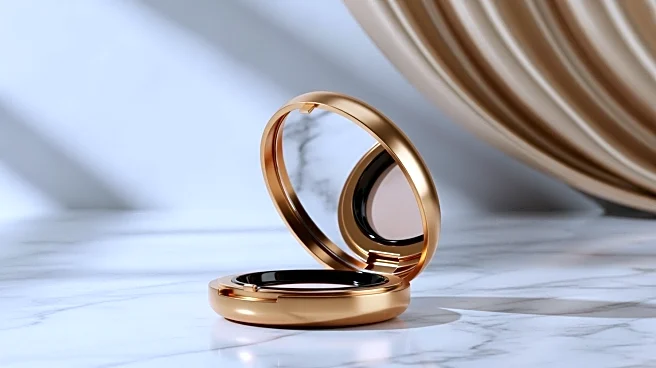What's Happening?
L’Oréal SA has announced a significant acquisition of Kering SA’s beauty division for $4.7 billion. This strategic move includes the purchase of the House of Creed, a perfume maker acquired by Kering two
years ago. The deal also involves a collaboration between the two companies to develop and distribute fragrance and beauty products for Kering’s luxury brands such as Gucci, Bottega Veneta, and Balenciaga. This acquisition marks a shift in strategy for Kering under its new CEO, Luca de Meo, who is steering the company away from its previous plan to expand its direct control over the beauty segment. The transaction is expected to close in the first half of next year, with Kering receiving €4 billion in cash and royalties from L’Oréal.
Why It's Important?
This acquisition is a pivotal moment for both L’Oréal and Kering. For L’Oréal, it strengthens its position as the world’s largest dedicated cosmetics and beauty group, enhancing its luxury market portfolio with long-term licenses for Kering’s perfume brands. This move is expected to boost L’Oréal’s growth in the high-end fragrance market, a sector where competitors like Hermes and LVMH have been strong performers. For Kering, the deal provides a financial boost, helping to reduce its debt and refocus its business strategy under new leadership. The transaction reflects a broader trend in the luxury industry towards strategic partnerships and licensing agreements, which can offer higher margins and reduced operational risks.
What's Next?
As the deal progresses, L’Oréal will begin integrating Kering’s beauty brands into its portfolio, with the Gucci license taking effect after the expiration of a current agreement with Coty Inc. Kering, on the other hand, will likely continue to streamline its operations and focus on reducing its debt, as indicated by CEO Luca de Meo’s recent strategic initiatives. The luxury group is also expected to unveil a new strategic vision next spring, which may include further restructuring or partnerships. Investors and industry analysts will be closely watching how these changes impact Kering’s market performance and its ability to navigate challenges such as fluctuating demand in China and potential U.S. tariffs.
Beyond the Headlines
This acquisition highlights the evolving dynamics of the luxury beauty market, where licensing agreements are becoming increasingly attractive due to their potential for high margins and lower capital requirements. The deal also underscores the importance of strategic agility in the luxury sector, as companies like Kering adapt to changing market conditions and consumer preferences. Additionally, the transaction may influence other luxury brands to reconsider their strategies in the beauty segment, potentially leading to more collaborations and acquisitions in the industry.











